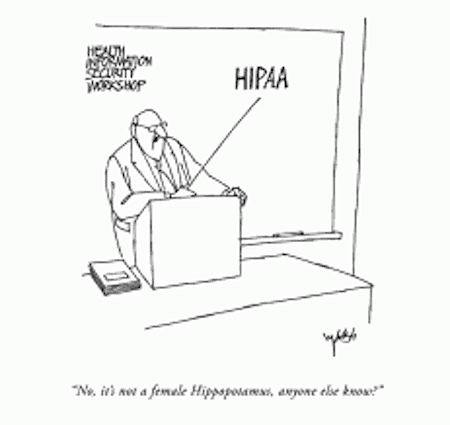Definition of HIPAA Compliance
HIPAA is the legislation that represents rules and standards which are made to protect patient health data by any mean and it does extend to any form. Organizations that work with patient health information (PHI) should follow these rules to ensure PHI security and take initiatives to qualify themselves as per HIPAA requirements.
Since its introduction in 1996, the Health Insurance Portability and Accountability Act, or HIPAA, has gone through multiple changes. This is the reason HIPAA compliance management is so hectic due to the many requirements made by regulatory governing bodies.
The history of HIPAA mismanagement is shocking
Healthcare systems had seen 325 distinctive and giant health data breaches in 2016 – according to a report by Redspin. The report also pointed out that 81% of those breaches were done by a hacker or IT system errors. Data breaches have been growing at 10% from 2015. In 2016, 47% of healthcare organizations have seen data breach at least once, although it was 37% in 2015. KPMG 2017 Cyber Healthcare & Life Sciences Survey found this crucial information.
In the survey, healthcare providers were asked whether they could manage a situation like a patient data breach. Shockingly, only 16% of organizations were positive about their capability to handle a data breach in 2015. The number increased to 35% the next year, as they said they were prepared for such an issue if it occurred.
Source: Pexels
How can HIPAA compliance management help healthcare systems?
A HIPAA compliance management system can provide numerous benefits to a hospital or healthcare system. Virtual databases, like electronic health records (EHR) or electronic medical records (EMR), offer usability, mobility, and efficiency in the patient care process. But with the expansion of networking and data sharing systems, the risk of exposing sensitive patient data has increased. This is what makes healthcare providers initiate proper management that can protect digital information.
A HIPAA compliance management system can help hospitals in several ways:
It can help to operate HIPAA privacy rules
In the final edition, HIPAA has represented the requirements for PHI protection. This includes clinical history, medical records, payments for healthcare treatment, diagnosis, and other healthcare-related information. Such information must be protected and inaccessible by third-parties. Hospital staff needs detailed training to understand how these rules work.
It can provide a clear concept to the security rules
The security rules of HIPAA describe the limitation of data access for personnel related to healthcare services. It defines the security needed to detect, correct and prevent any future security threats.
Any entities which have access to PHI have to conduct data breach risk analysis on a scheduled basis to ensure data protection. The rule also recommends what measurements to take for security risk analysis- and all this can be understood by proper management for training.
It can be utilized to enforce the rule
The enforcement rule of HIPAA covers financial penalties regarding any data breach and provides investigation provision. It measures the penalty amount depending on the number of medical records that might have disclosed.
Any data breach is a costly event, considering that a healthcare provider will be paying 100 to 50,000 dollars for the first incident and up to 1,500,000 dollars for other subsequences. Hospitals have to help staff understanding the volume of risk with a proper management system.
HIPAA Compliance Management is now available on one platform!
HIPAA Ready is here with the core intention to provide a proper compliance management system. It is a modern, affordable and effective way to manage HIPAA Compliance. HIPAA Ready is a robust application and it streamlines the HIPAA compliance management process by preparing a digital checklist for meetings and training information. By putting everything together in one place, it reduces the complexity of understating HIPAA and implementing the rules.
Not only does this update new policies of HIPAA on the platform, but it also arranges HIPAA compliance meeting, set training for the staff and schedule assignment to individual trainees. In short, this is the perfect tool to make your organization HIPAA compliant.

